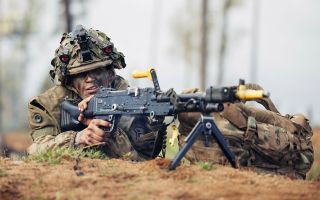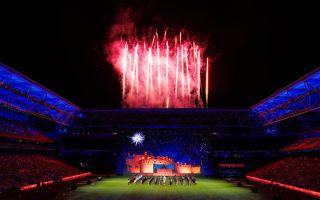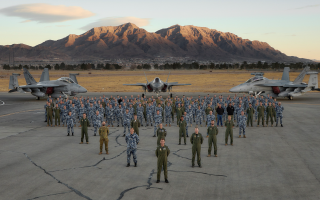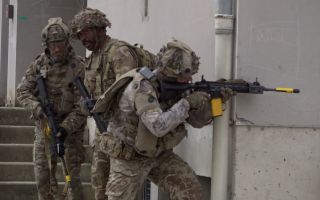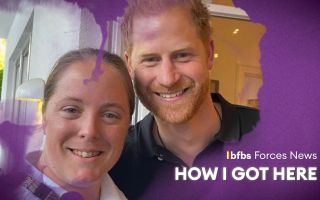Tri-Service
The Two-Year Fight Against IS
It’s been confirmed for the first time that missiles have been fired at RAF jets during sorties on Operation Shader.
Deputy Chief of the Defence Staff, Lieutenant General Mark Carleton-Smith, told reporters the missile launches had been detected, and strikes prevented by defensive equipment on board.
The Defence Secretary has paid tribute to the servicemen and women taking part:
It has now been exactly two years since Parliament approved military force against the so-called Islamic State.
In 2014, the terror group had spread out into Syria and Iraq, and the RAF started conducting humanitarian aid drops to people who'd been threatened or displaced.
These aid drops helped to sustain Yazidi refugees on Mount Sinjar until they were freed by Kurdish forces.
On September 24th, Operation Shader, the name for the British part in the fight against IS, was initiated and bombing of IS commenced in Iraq.
At the end of 2015 Parliamentary approval was given to extend the mission over the border into Syria, and the mission was reportedly expanded into Libya earlier in the year.
The objectives were to train and equip Iraqi security forces to counter IS, and to provide air support to find and destroy the terrorists while continuing needed humanitarian assistance.
RAF Reaper drones, Tornados, and Typhoons based at RAF Akrotiri, Cyprus, have been used in the campaign.
Reconnaissance has also been an important part of the mission, with state-of-the-art sensors providing surveillance information to Iraqi patrols, and helping to identify car bombs placed to block their advance, so that these can be destroyed with precision weapons.
Airstrikes Hit Daesh 'Banks'
Most recently, Tornados have destroyed terrorist vehicles, a bomb factory, training facility, rocket launchers and two groups of terrorist fighters all in Iraq, and a terrorist strongpoint in Syria (on September 6th, 8th, and 11th).
Typhoons destroyed a howitzer in western Iraq on September 9th.
Meanwhile, Reaper drones have hit a mortar and rocket teams in Iraq on September 9th, 10th, and 11th.
As of May 24th this year, the UK had 1,100 personnel deployed to the region and had helped to train 18,000 members of the Iraqi security forces (ISF), including Kurdish forces in Besmaya, Erbil and Taji.






